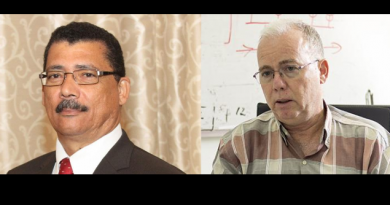CANNABIS FOR HEALTH IN SEYCHELLES: A “RALPH VOLCERE” CAMPAIGN
Uncertain impact of Cannabis on COVID-19 highlights need for Rescheduling
Medical professionals and industry leaders agree: we need to conduct more research on Cannabis.
The Schedule I status of marijuana stunts America’s ability to contribute to worldwide cannabis research. In light of the recent COVID-19 pandemic, these limitations became that much more apparent. Today, much of the world remains in the dark when it comes to understanding cannabis, according to Dr. Laszlo Mechtler, Medical Director of the Dent Neurological Institute in Buffalo, NY. Dr. Mechtler told High Times that most people, at best, have a rudimentary understanding of the plant and its benefits. The medical professional, whose roles include chief of neuro-oncology at the Roswell Park Center Institute, credits media outlets like High Times for disseminating information. However, he said that a lack of research prohibits a robust flow of information to the public.”
It is my opinion that much of this lack of understanding stems from the lack of research that has been done on cannabis, which is rooted in marijuana’s classification as a Schedule I controlled substance by the federal government,” said Dr. Mechtler. The Impact of Marijuana’s Schedule I ClassificationThe doctor’s sentiment is shared by much of the cannabis community, and those seeking to legitimize a burgeoning industry and medication further. Dr. Nimesh Patel, a co-founder of Redbird Bioscience, delved into the limitations created by marijuana’s Schedule I status. “The schedule 1 status is what keeps the plant from being studied by numerous scientific centers and conducting numerous research trials all which take time and access to high-quality cannabis plants and products.” Dr. Patel noted that the U.S. does allow limited research with cannabis sourced from a government-approved site at the University of Mississippi. However, in recent years, reports of subpar samples, including moldy cannabis, ruin the prospects of research. In 2019, efforts to expand the program and its quality were announced.
“One cannot conduct research trials unless the product is of the highest quality,” said Dr. Patel of ongoing concerns over government-approved samples. “There are numerous different strains of cannabis with each with different medicinal benefits and need to be used appropriately for specific conditions in structured research protocols.”
While severely hampering American cannabis research, this circumstance has been the case for years. However, in doing so, the U.S. has slowed down the understanding of marijuana. The lack of understanding was only amplified when the COVID-19 pandemic arrived.
The Effects of Cannabis on COVID-19 Stalled in AmericaAmerican researchers have had little success at attempting to study the effects cannabis and COVID-19 have on one another. Dr. Laszlo Mechtler stated that “The same restrictions that hamper general cannabis research extend to cannabis research on COVID-19.”
While limited, research is expanding in the U.S. An example may be found in Pennsylvania, where Teddy Scott, CEO of dispensary Ethos Cannabis, and his company use state legislation to partner with certified medical schools to conduct research. Partnering with Thomas Jefferson University in June 2020, Scott told High Times that Ethos is able to conduct “real research” with patients. However, the program’s recent launch prevents it from contributing to COVID-19 studies with the university not aligning any research towards the virus at this time. Insights may still come from the U.S., including the University of Miami, where research has been underway, assessing the effects COVID-19 has on medical cannabis patients. However, nations like Canada appear to be leading the way with trial drug studies, including one May study which concluded that CBD may aid in blocking cells that enter from the virus. That said, additional research is required across the board before any conclusive findings can be made.
Source: Andrew Ward, High Times



